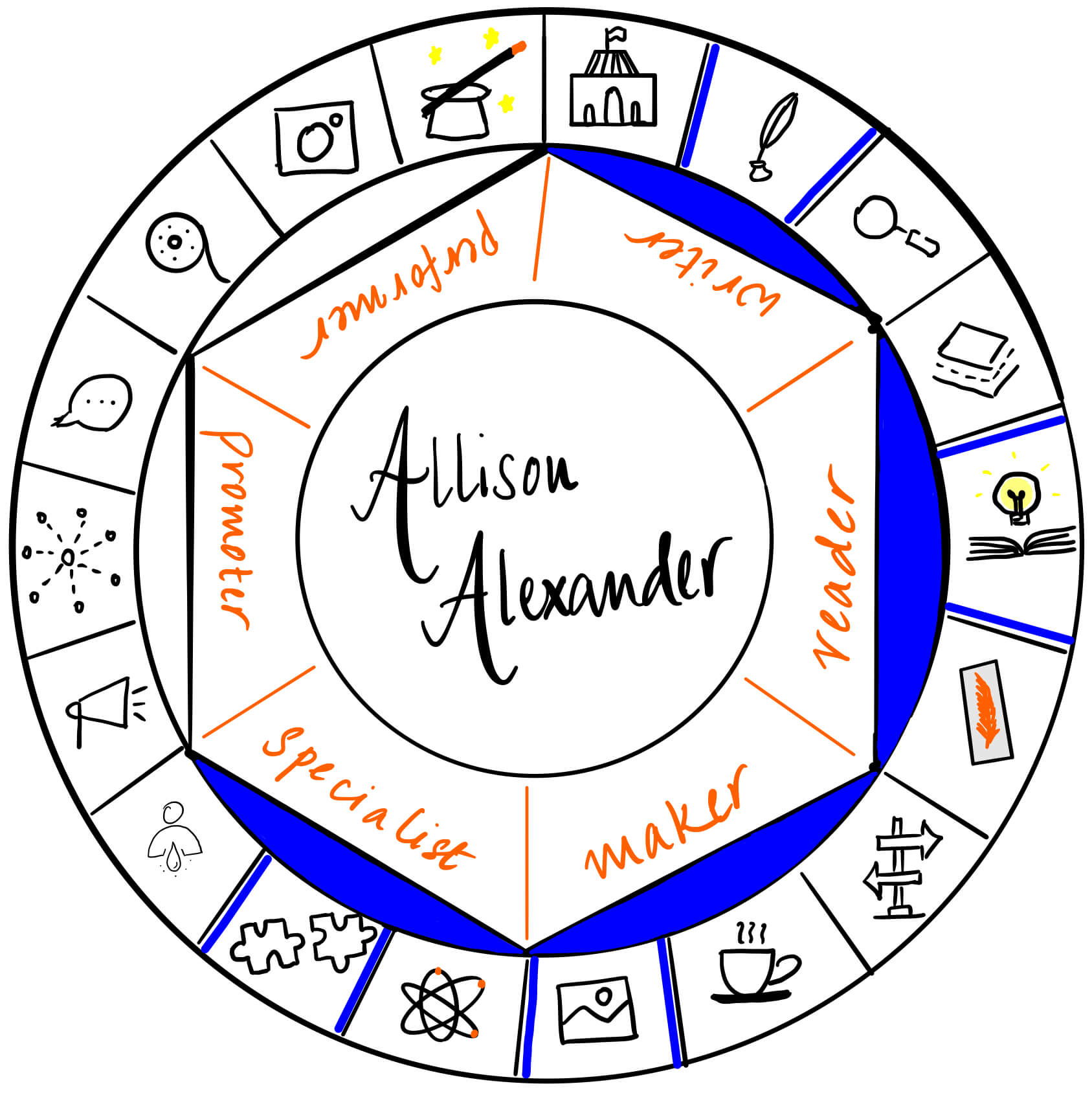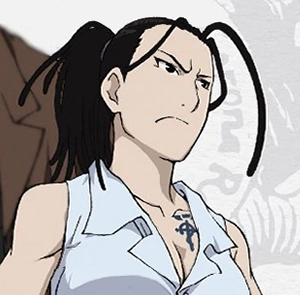
Allison Alexander’s book Super Sick: Making Peace with Chronic Illness opened a whole new world to me in books. It’s like when you suddenly see something clearly that was always there but now is in focus! That is how I felt about characters with disability in fiction ever since reading her book. I noticed them and I appreciate them being there because life as we know is all not butterflies and rainbows. We chatted about this briefly with regards to reading during these self-isolating times and now I have Allison here to talk about disability and fiction.
Allison, welcome to The Creator’s Roulette. How important have representations of disability been in your life, especially when you were a kid?
Thank you. It’s lovely to be here! As a kid, I didn’t consciously notice characters with disabilities or compare myself to them. Most of the characters I would have seen were Tiny Tim types—there to be pitied or to inspire another character. I didn’t think of myself like that. The first time I compared myself to a character on TV was when I saw the anime Fullmetal Alchemist as a teenager. In the show, Izumi Curtis is a feisty alchemist who has an illness that makes her cough up blood at inopportune times. I was enthralled because she was sick and she was a badass hero taking an active role in the story. I loved seeing a character who wasn’t on the sidelines, whose identity wasn’t swallowed up by her illness.

I remember her! I enjoyed her role in the series. And talking about Fullmetal Alchemist, that series has so many outstanding characters. That makes me want to rewatch it now. Are there any other memorable characters from the series for you that you connected with on a personal level?
I normally like side characters more than protagonists, but I love Edward Elric. He’s stubborn and determined to get his brother’s body back. He also has this strong moral code he refuses to break. He’s gone through so much suffering but uses the bad experiences to do good. Riza Hawkeye also reminds me of myself because she’s so quiet, calm, and loyal—sometimes to a fault! She’s so disciplined that she rarely relaxes. However, I’ve been practicing going easier on myself so I’ve gotten better at it.
What are some misconceptions or misrepresentations you have found about chronic illness and disability in fiction?
There are several! I came up with a checklist for when I am analyzing fiction and for writers to use when they are creating disabled characters. It includes the whole “we’re only there to be pitied or inspire others” thing. Another misconception is that disability is a “problem” that needs to be cured. You can download the checklist and read about a positive example (one of my favourite characters—Toph Beifong from Avatar: The Last Airbender) by signing up for my newsletter!
That is super handy, thank you Allison! What led you to create such a list?
I’m an editor at a small press that publishes sci-fi and fantasy, and I often give writing tips on their blog. My co-editor and I each wrote a post on disability tropes: “4 Tropes to Avoid When Your Villain has a Disability” and “3 Tropes to Avoid When Your Hero has a Disability.” I realized a checklist might also be useful for writers to look over, so I compiled a list of the things I look for when I encounter disabled characters.
What are some ways in which readers and reviewers can help bring more awareness about characters with disabilities in fiction?
Be aware when you read a positive example of disability in fiction and that this is to be celebrated. Follow disabled writers and review books that feature these characters.
Educate yourself on what a positive example is and why it’s so valuable to those of us with disabilities and chronic conditions.
Can you give us an example of a positive representation?

I just read A Curse So Dark and Lonely by Brigid Kemmerer and I appreciated its inclusion of a disabled protagonist. Harper has cerebral palsy and is not defined by her disability. The book’s plot does not revolve around her condition. She’s not there to inspire another character. She’s a feisty young woman who gets drawn into another world and plays a significant role in the fate of a fantasy kingdom. There are characters who think that she’s useless and needs to be protected because of her condition, but she refuses to be put in that box anymore.
A lot of representation in fiction isn’t perfect, and this book is no exception. One of the critiques is that Harper could be switched out for an able person and the story would have been very similar. I would have liked to see her cerebral palsy cause her a few more problems in the narrative and to manifest itself as more than just a limp. But this book is a step in the right direction, proof that heroes don’t have to be physically perfect or healthy.
I am yet to read A Curse So Dark and Lonely and I am so glad you mentioned it. Bumping it on my list! The one character that comes to my mind is Ella from The Illuminae Files. Ella is not a protagonist but plays such an important role in the book with her hacker skills and intelligent thinking. She is paralyzed from the waist down and wears an oxygen mask and in spite of that, she fights alien parasites and humans. The book is written in the form of logs and transcripts of surveillance footage and still does a good job of showing Ella’s strengths.
Our tour for your book actually reminded me that not all chronic illnesses are obvious to identify. You shared about Raven from the 100 on my blog and it was eye opening to me that I had totally missed the fact that her constant pain is chronic pain now. Similar to trigger warning and content notes, sometimes experience is what helps us notice certain things in fiction and media. What are your thoughts about this?
I wouldn’t have clicked so much with Raven’s desire to swallow the chip and be rid of the constant pain if I hadn’t experienced chronic pain myself. Chronic illness is difficult to understand if you haven’t experienced it yourself and you can definitely overlook it in fiction and reality. A lot of people with chronic conditions also aren’t comfortable talking about it—we never know who will believe us or what other people’s responses will be, and it’s not our duty to “educate” people. I’ve had people tell me, after reading my book, how shocked they were when they realized the amount of pain and stress I go through.
I also may not have realized just how underrepresented disabilities are in fiction if I hadn’t started researching it for my book. I wanted a positive example for each chapter that related to a particular topic (e.g. anxiety, depression, worthlessness, etc.) and realized just how few my options were. That led me to start noticing and appreciating positive examples whenever I found them. It was an unconscious appreciation before (for example, I loved the character Laura Roslin from Battlestar Galactica but didn’t really connect the dots about why her character resonated with me so much until later). I didn’t think much about disabled characters in fiction (particularly sci-fi and fantasy) when I was younger because I never saw them. They weren’t an option. Now that I know they are, I love being able to put myself in the shoes of a chronically ill superhero and I want more opportunities to do so!
Just looking has opened a whole new world. Many books have been made into movies and I am wondering if you have noticed whether chronic illness representations translate well from the book to screen since they are very different mediums. Your analysis of Final Fantasy characters in Super Sick was really helpful to me and though I have not played the game, it showed how interactive media can present these themes too.
I think any medium can include characters with chronic illnesses. I suspect it is often a challenge, especially for invisible illnesses. It’s easier to feature a healthy, fit hero. Books do have the advantage of getting into the character’s head; that’s where a lot of my battles with chronic illness take place. Other media has to show that struggle in other ways.
Video games are a huge part of my life and they include another level of putting myself in a character’s shoes. Some of the games that have impacted me most haven’t featured chronic illness specifically, but include a character working through grief and loss: RiME, GRIS, and Final Fantasy IX were particularly visceral experiences for me in this way. There is something cathartic about progressing through gorgeously drawn levels and seeing the character you control experience grief. In story-based games, I really appreciate when a playable character has an illness. In the book, I mention Cloud from Final Fantasy VII and Rhys from Fire Emblem: Path of Radiance. There are a few others I’m aware of—Ace Attorney’s Athena Cykes has sensitive hearing, Earthbound Beginnings’ Ninten has asthma, and Sonic Adventure 2’s Maria Robotnik has Neuro-Immuno Deficiency Syndrome—and I hope to encounter more.
This has been an amazing conversation, Allison! Thank you so much for taking time out for answering my questions and sharing your experiences.
What are some of your favorite books, anime or movies that represent disability well?
It was lovely to chat with Allison! You can get your copy of Super Sick: Making Peace with Chronic Illness and see my review of it here. Connect with Allison on her Author Website, Newsletter, Twitter and Instagram.

Cover Photo by João Silas on Unsplash

This was an amazing interview! Thank you for sharing your insights, Allison. My current writing journey includes characters with a variety of disabilities and mental illnesses, including a future blind character partially inspired by Toph! I look forward to reading your book and learning more about positive portrayals of disabled characters.